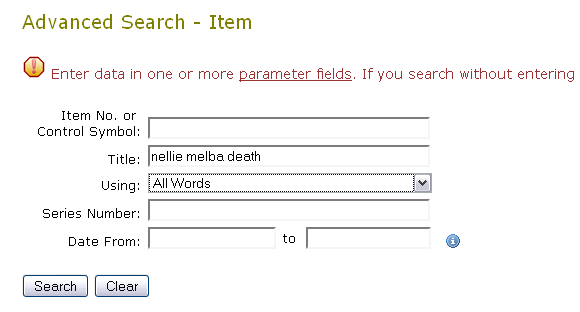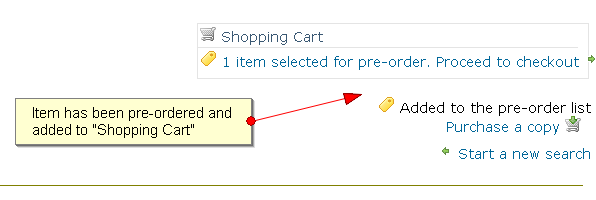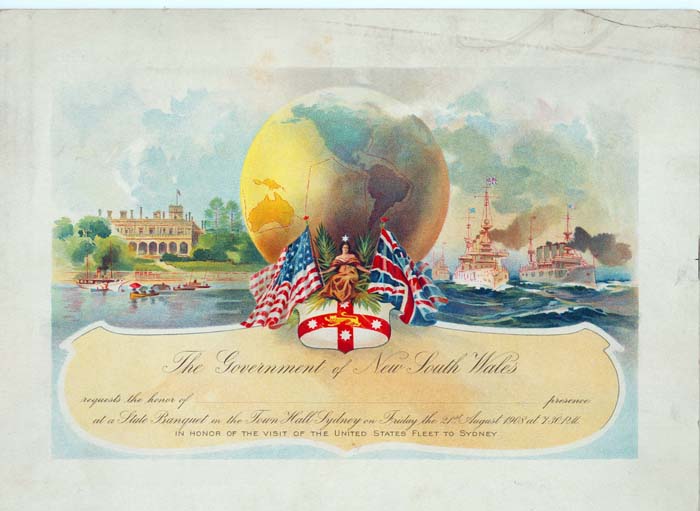– from request to delivery
[or: The Amazing Adventures of Dame Nellie Melba’s Probate Packet]
Someone just found me on the internet! I’m listed in a database called Archives Investigator – the online archival catalogue at State Records NSW. Not all of the 7+ million items stored here have been listed in the system so I feel quite important.
What am I?
I should introduce myself before we move on. I’m a record, or more importantly, an archive. A probate packet to be precise. I am [ahem] almost 80 years old; ‘born’ when the subject of my contents died.
Life before arriving at State Records NSW is a bit hazy…I believe I spent most of the time bundled together with other probate packets deep in the bowels of the Supreme Court of NSW. And here at SRNSW? Well…I spend most of my time in a box bundled together with other probate packets. I don’t mind, we all know each other. Not much happens to us. Until now…
How was I found?
As I said, I’m on Facebook Archives Investigator and someone searched for me. There are many types of searches that be done in Archives Investigator – I was found through an Advanced -> Record Item Search.

and the result was this:
What happens now that I have been found?
I’m an ‘item’ in the system and the savvy web surfer who found me wants to know more about me. In fact, he decided he needs to see me. The quick and easy option would be to purchase a copy through the online shopping system but in the end he decided for the ‘try before you buy’ option.
This means I’m being pre-ordered.
What the heck is a preorder?
SRNSW helps you get the most research out of your day by offering a service in which you can pre-order records in advance of your visit. While this service has been in place for a few years, it is a new facility in Archives Investigator. SRNSW is continually working on ‘streamlining’ the pre-order process; the main problem being that not all records are listed in the one system. Other ways to preorder are by using the generic pre-order web form, by telephone (02) 9673 1788 and by email preorder@records.nsw.gov.au.
The new option in Archives Investigator is a simple four step process:
- if the record can be ‘booked’ the pre-order option will be available
- follow the prompts to the ‘checkout’
- fill in your details
- select a date for your visit (at least two working days ahead) and submit.
 The pre-order request has been submitted and received. Let’s see what happens tomorow…
The pre-order request has been submitted and received. Let’s see what happens tomorow…
Questions (includes links with your answers, please)
- What is the most useful online archival catalogue you have found?
- Have you used a pre-order system before?
[If you’re interested, more information about (Dame) Nellie Melba is on the Australian Dictionary of Biography Online.]


 At State Records we have a small Digitisation Program. Budget constraints, staff resources and an archival collection significant in both historical value and size means we can’t digitise everything. Sound familiar? Small as it may be, the program has an important function within our organisation for it assists in the preservation of records and increases access to the collection.
At State Records we have a small Digitisation Program. Budget constraints, staff resources and an archival collection significant in both historical value and size means we can’t digitise everything. Sound familiar? Small as it may be, the program has an important function within our organisation for it assists in the preservation of records and increases access to the collection.